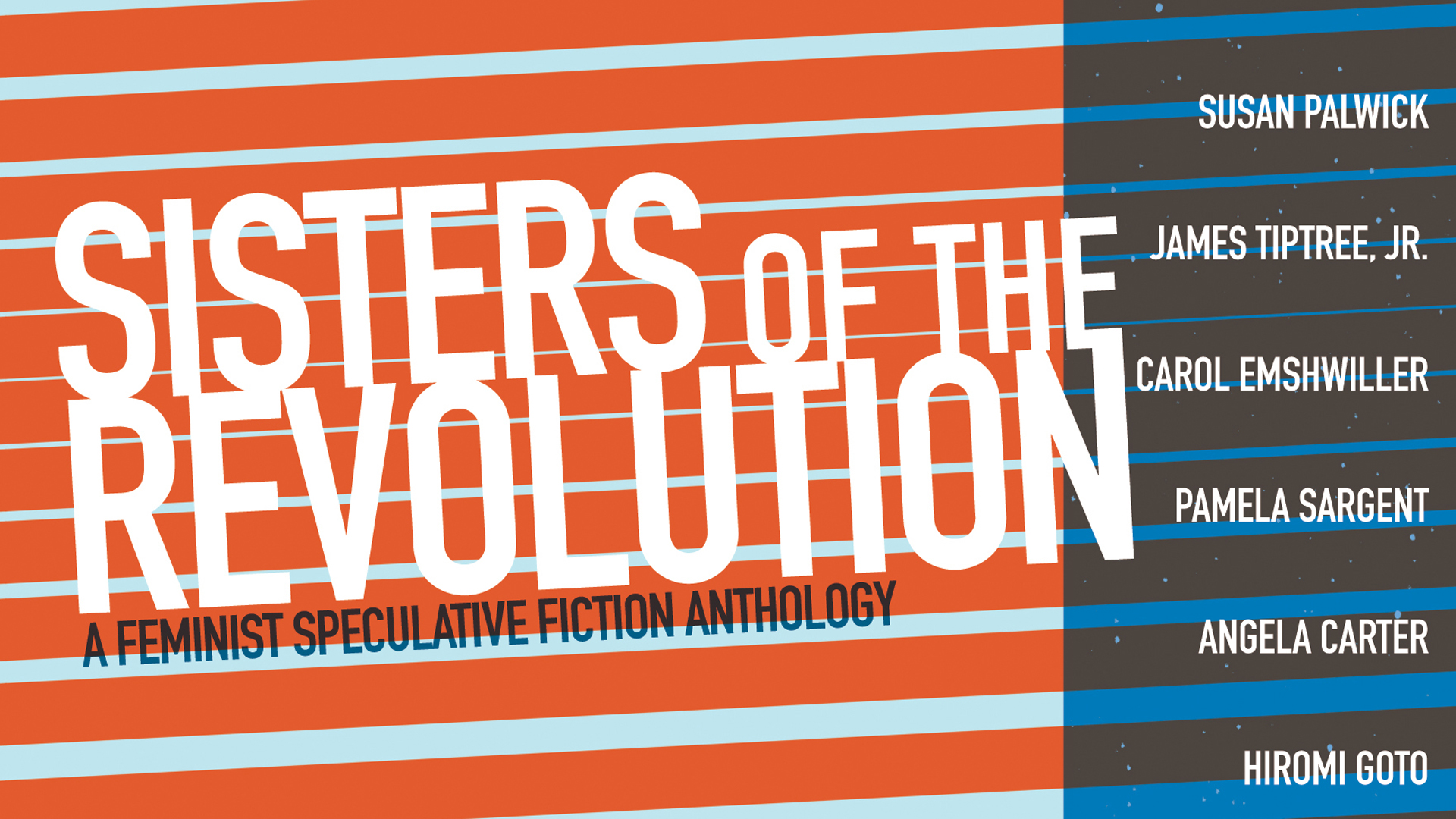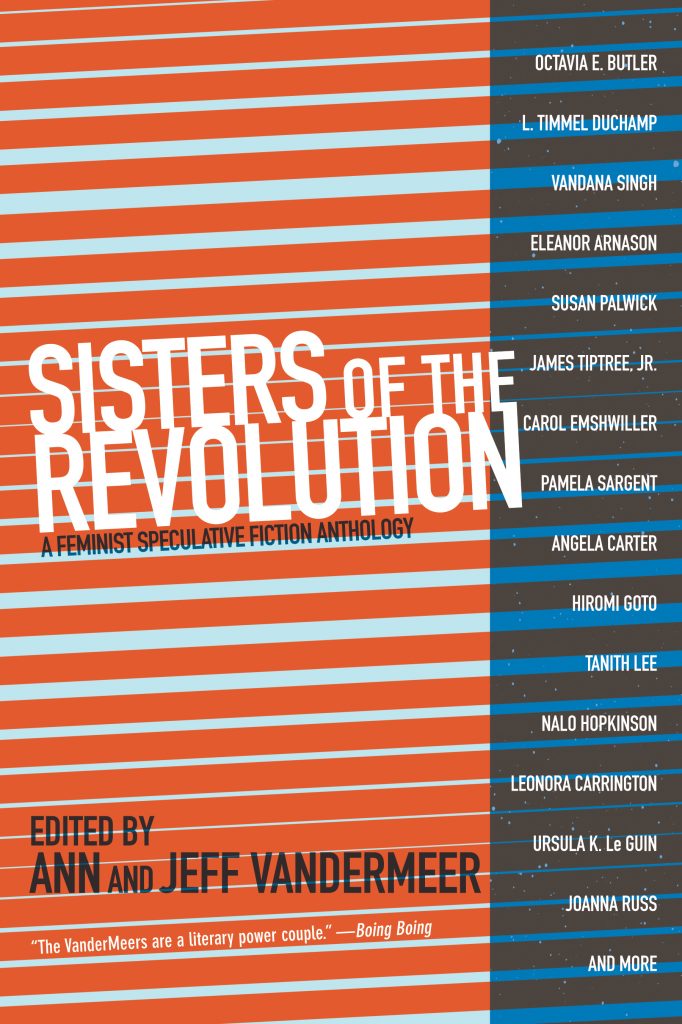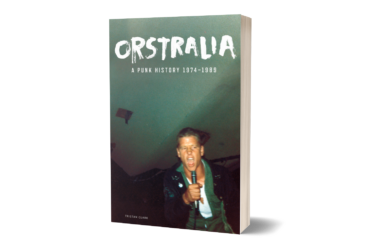By Sarah Mirk
Bitch Magazine
September 3rd, 2015
This summer, something really exciting happened in the world of science fiction.
The Hugo Awards are the biggest prize in science fiction. While women have been writing sci-fi since the beginning of the genre, Hugo Awards have gone almost entirely to dudes. That swiftly changed in recent years—in 2013, female authors were 60 percent of nominees for the prestigious prize. The burgeoning diversity of the Hugo Awards pissed off a group of several hundred white, male sci-fi fans, who schemed to swing the awards back in the favor of male authors by voting as a block. But the rest of the Hugo Awards voters pushed back. At the awards ceremony on August 22, the results came in: No authors endorsed by the white-dude-group took home any awards. Instead, in five categories that had only “rigged” nominees, the majority of voters instead decided to vote for no award. As Wired reports, Best Fan Writer award winner Laura J. Mixon told the crowd in her acceptance speech, “There’s room for all of us here. But there’s no middle ground between ‘We belong here’ and ‘No you don’t.’”
At the same time as the status of women and people of color is raging in sci-fi fandom, editors Ann and Jeff VanderMeer published a compelling new anthology of feminist science fiction. Sisters of the Revolution: A Feminist Speculative Fiction Anthology collects short stories published over the past 40 years, showing the impact feminist sci-fi has been making for decades. The anthology, from PM Press, includes work from 24 authors including stand-bys like Octavia Butler, Angela Carter, and Ursula K. Le Guin as well as relatively newer writers like Nnedi Okorafor. One of my favorite stories in the collection is the very first one, L. Timmel Duchamp’s “The Forbidden Words of Margaret A,” which is a detailed report from a journalist sent on a heavily monitored press junket to interview dissident Margaret A, who is under house arrest in a future America. Published in 1990, the story reminded me starkly of Burmese opposition leader Aung San Suu Kyi, who accepted the Nobel Peace Prize in the midst of her 21 years under house arrest.
I talked with Ann VanderMeer, who works as an editor at Tor publishing house, about the climate of science fiction these days. She hopes this feminist sci-fi anthology will be the first of many collections that will cement female writers in the sci-fi canon.

Octavia Butler’s story “The Evening the Morning and the Night” is featured in Sisters of the Revolution.
SARAH MIRK: When did you first start editing science fiction?
ANN VANDERMEER: Oh gosh. Okay, this is going to show you how old I am. I started my own magazine back [The Silver Web] in the late ‘80s, because I was a huge fan of reading it and there were a lot of small press magazines being published at that time that I subscribed to. At a certain point, I just sort of said to myself, “I bet I could do a better job.” I didn’t know anything about anything, I just knew that I loved to read. So, that’s what got me started in publishing my own magazine, and then that just jumped off and gave me other opportunities. Some of the writers, I published their first stories, and they’re still publishing today. So I think the reason why I got involved in it is because I just loved to read so much, and when I find something that I truly love, I want to share it.
Since you’ve been in this for a long time, how do you think science fiction is changing?
I’m just really hopeful and excited for the future. I think it’s changing in a lot of ways, because having all these different perspectives, and different views coming into the science fiction community can only make it better. You gotta think about it this way, Sarah. When you think about what science fiction is—science fiction is of the future, what it answers is the “What ifs.” Let’s take a look and extrapolate what our future is going to be. So when you’re talking about the future, you have to be able to see the future in the context of the world you’re living in today, that’s what everyone does when they start writing whatever it is that they’re writing. So, when you have a science fiction story set in the future, you’re extrapolating the best or maybe the worst case scenario that you’re seeing. Maybe it’s dystopian. But to me, the fiction of science fiction is hopeful because human beings are still wanting to have a better world. And sometimes fiction can help the world change. Look at Sinclair’s The Jungle, the book that he wrote that created all those food and drug administration laws back in the last century. Some fiction can change the world. A lot of science fiction written actually inspired people to go into the hard sciences and become astronauts and make differences that way.
So for this anthology, how did you define what qualifies as feminist speculative fiction? I’m usually not one to draw a line in the sand and say “This is feminist, this is not.” But when you’re putting together an anthology that’s explicitly feminist, you have to decide what’s feminist compared to what fiction is discussing social issues in other ways.
When you’re doing an anthology, any kind of anthology, the definitions that you create are going to be subjective. So, this was our point of view, and what we were trying to do is to show different ways in which the feminist themes can be explored. It wasn’t just highly political rhetoric, where you look at it and you know, “Yes, this is a feminist story.” It might not necessarily be that way. But we wanted to show how many different ways there are to explore gender, to explore equality, and community. We were trying to explore intersectionality, it was more than just one thing. Now of course when this came out, I’m sure there was a lot of people that said, “Well you should have had this story, you should have had that story,” and I agree! There’s a lot of stories we could have put in there, but we only had so much space, there was only so much we could do. But we did try and touch on all different types of stories. We also wanted to make sure, for the reader, our audience, the reader experience, that as they’re reading it, we want to make sure that the stories work well together, and that they’re different enough from each other that the reader’s not going to get bored.
I wanted to start off with “The Forbidden Words of Margaret A.” I thought that was a perfect story to set up the book because it talks about women’s voices and the danger of women’s voices and what that means in the world. And I just thought it was the perfect way, because sisters of the revolution, that’s what we’re talking about: women’s voices, women’s experiences, women’s perspectives.

The collection includes “The Screwfly Solution” by Alice Bradley Sheldon, who went by pen name James Tiptree, Jr. from 1967-1987.
One thing that’s funny is that I’ve been telling my friends about this book, and they keep saying, “Oh, that sounds like Octavia’s Brood!” That’s the science fiction and social justice anthology that came out earlier this year. And I’m like, “No no, it’s not Octavia’s Brood, it’s a different feminist science fiction anthology.” So I was wondering, have you heard of Octavia’s Brood?
I have heard of that book, and I have to apologize that I haven’t read it, I’m really behind on my reading currently, because my head’s be so into this project, but I’m really looking forward to being able to read more. From what I understand, that book, most of the stories that are in there are more current, I could be completely wrong.
I think it’s a good companion to it—
Exactly, because it’s looking at right now.
Yeah, it’s all new work just for that anthology. And this is great because it’s sort of looking back through history at people who inspired writers of today. I’m wondering if you feel like, in your opinion, feminist science fiction is having a renaissance right now. Or am I just living in a bubble where more people are talking about it?
Well, I don’t know if it’s necessarily a renaissance, but I think it’s really exploding as far as its commercial viability. I think the rest of the world is starting to catch up with what we’ve known all along: how cool it is. I just think it’s become more mainstream, and so people are doing it now, it’s more respectable, it’s something that’s being studied in universities, it’s not something you hide behind a cover of a different book. Also, more and more people in the world are writing it and because of advances in technology and the Internet, we’re able to share it with each other.

Ursula K. Le Guin’s story “Sur” is in the collection. Photo by Jack Liu.
What I like about this anthology is there a lot of authors in it whose work I know and there are many names I don’t know at all. It’s cool as a reader to be able to look through those.
Well, I’m so glad that you said that, because that means that I did my job. That’s really something I want to do, in every project I do, I want people to see something familiar and something they’ve never heard of before.
Can we talk about the Hugo Awards, which happened this weekend?
Oh, yeah. My husband and I actually streamed it so we were up really late on the couch watching it.
I was wondering what you think of the “puppies” pushback to the Awards and what that reveal.
Well I have to say I was really excited at the people that won. The best novel category, I was very, very excited about that, because I know both the writer and the translator, so that was—I mean the way that I look at the outcome of the entire awards ceremony is it was showing you that science fiction is bigger than just the United States and the U.K. That’s how I felt. The science fiction community is definitely making that outreach into the wider world. When you think about the Hugos, what you’re looking at is a popularity contest in a sense because the awards are going to be voted on by the people that buy the memberships. It’s plain and simple. It’s not a juried award, there’s no judge, it’s just who’s voting and how they’re voting. So it’s just by the numbers. When you look at it that way, the thing that was really exciting to me is that this past year they had more than double the average number of people voting than they’ve had in the past. I think they had close to 6,000 people who voted.
Did more people turn out to vote because they’d heard about the controversy over the awards?
Well, I think people were getting more involved in the discussion. If you take a look at the numbers, and you look at the number of people who are actually members of World Con, every single person who signs up for a membership, whether it’s supporting or attending, can vote. So, typically, only half of the people that have memberships, vote. Only half. It’s kind of like when you take a look at our Presidential elections, what’s the percentage of people that vote? Not everybody. But we had so many people that actually voted. Now, here’s the good thing about that. It’s not true for every voter, I’m not naïve, but a lot of voters went in and read the stories, which to me is amazing. So a lot of those stories got a larger audience than they ever would.
So were you surprised by the pushback against the feminist momentum in science fiction these days or is that something that you could see coming?
Well, I don’t know if I was so much surprised by it because there’s always been the possibility of block voting or slight voting in the past. It’s not something new with the Hugos. What’s new, I think, this time is because of the technology that we have and the larger world that we have, I think there was probably more attention on it. We’ve been doing the Hugos for 50, 60 years now, something like that. And the last couple years, it’s actually being reported in mainstream newspapers, in the New York Times, the Wall Street Journal, who never cared.
Related Listening: Our feminism and sci-fi podcast explores the connections between social justice and science fiction.
Sarah Mirk is Bitch Media’s online editor. She’s interested in gender, history, comics, and talking to strangers. You can follow her on Twitter.
Back to Ann VanderMeer’s Author Page | Back to Jeff VanderMeer’s Author Page







